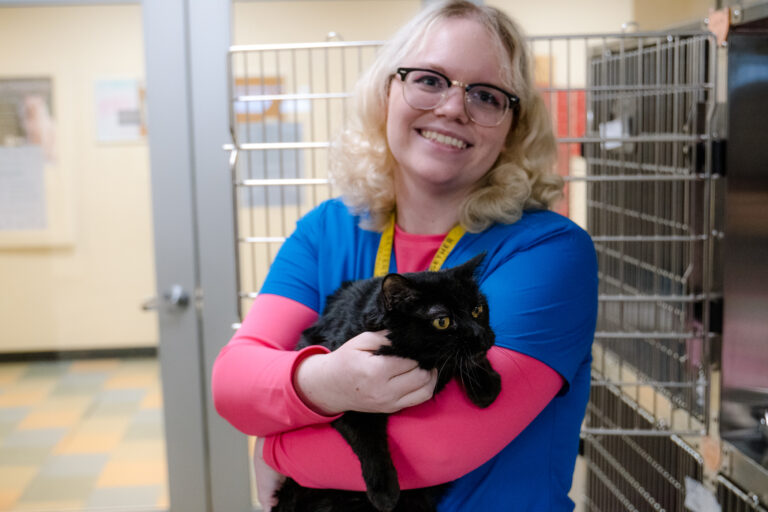Housing issues, allergies, financial strain, or simply a wrong fit. What do all of these have in common? These are all frequent reasons people surrender their cats and dogs to animal shelters.
No matter the cause, giving up a furry family member is often a heart-wrenching decision, which pet guardians make because they don’t think they have other options—but they do.
Many animal shelters throughout the country have surrender prevention programs, which are services designed to help families keep their pets.
In fact, surrender prevention (which helps limit the number of animals that come through shelters), combined with practices that focus on getting cats and dogs out of the shelter (like foster programs and easier, more accessible adoption processes), has helped shelters save more furry lives in the past couple decades.
Surrender prevention has an added benefit as well: Keeping families together and preserving the human-animal bond. The human-animal bond refers to the “mutually beneficial and dynamic relationship between people and animals that is influenced by behaviors essential to the health and wellbeing of both,” according to the American Veterinary Medical Association. Did your dog help you through the isolation of pandemic lockdowns? Does your cat run with her tail up to greet you when you come home? That’s the human-animal bond.
If you are struggling and think you can’t keep your cat or dog any longer, here are some options available to you:
- Use a pet food bank. Many animal organizations have these, to distribute free cat and dog food. Standard food banks for people also might have pet food, so check those as well. At Better Together Animal Alliance, our Pet Food Bank gives out more than 5 tons of cans and kibble annually, without requiring people to show proof of income or anything similar.
- Reach out to friends and family members. You rely on them for support in other situations, so why not this one? Ask if they can take in your cat or dog temporarily while you get through your situation. Using social media to reach a larger, but trusted, audience can be helpful as well.
- Contact your local animal shelter. It could have an emergency boarding program to take in your pet at the shelter temporarily, like Better Together Animal Alliance’s Temporary Loving Care (TLC) program. Shelters also might offer low- or no-cost veterinary services, in case the cost of medical care is why guardians can’t keep their cat or dog. BTAA even has a helpline to help local families connect with resources – 208-217-4453.
- Rehome your pet privately. If giving up your pet is your only option, you can do so without bringing it to a shelter. Use platforms like Better Together Animal Alliance’s Home To Home (home-home.org), which allows you to post your pet for rehoming, so the public can view the profile. You can also use social networks, like Nextdoor, for this. Rehoming your cat or dog privately will be less stressful for them, since they will go directly from your home to another home, instead of to the shelter in between. Plus, you get peace of mind knowing your pet’s new guardian. You can personally share all your animal’s information and quirks, and possibly even stay in contact with the new family.
Giving up your cat or dog is never easy, so we want people to know that they do have options. At Better Together Animal Alliance, we respect the power of the human-animal bond and work hard to keep families together whenever possible.

